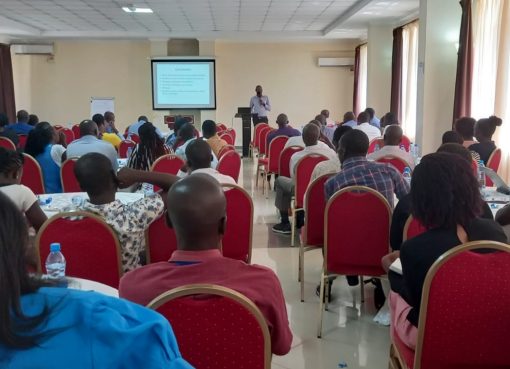Local leaders and farmers in Kuria East and Kuria West sub-counties have welcomed the move by the Government to subsidise fertiliser as a way of combating the high cost of living.
A total of 3500 bags of subsidised fertilisers were flagged off at the Kehancha and Ntimaru National Cereals and Produce Board depots, led by Kuria East Member of Parliament Marwa Kitayama and National Cereals and Produce Board (NCPB) regional representative Moses Toroitich.
Toroitich said that the subsidised fertilisers would be given to farmers after sorting out the challenges they had faced due to code delays and registration anomalies.
He added that the farmers should use the chance to produce more and make a profit by selling them to the NCPB when the prices are favourable.
Kitayama noted that the subsidy imparted on fertilisers would greatly help many local farmers who have been pushing for the reduction of prices on fertilisers and other farm inputs.
The legislators said that they would push the National Government to also consider subsidies on other farm inputs like chemicals, seeds, and even fuel that still make farmers find it hard to produce food.
The same sentiments were echoed by Kehancha Assistant County Commissioner Benson Mwaura, who called on the farmers to use the chance to produce more food crops and generate more income.
He called upon farmers to report any cartels involved in the sale and distribution of fertilisers to neighbouring Tanzania in order to protect the commodity that stands to benefit them.
Similarly, Kuria Farmers Association Chairperson Peter Chacha affirmed that the subsidy would help farmers in the region produce more crops and increase crop acreage.
“The Sh. 2,500 is an affordable price that the majority of farmers who have lost hope in agriculture will find favourable. And the large numbers that have turned up here today to collect the commodity is a justification that farmers are too happy,” affirmed Chacha.
The local farmers urged the leaders to push for the subsidy on other farm inputs to enable them to produce more food and reduce the cost of living.
By Geoffrey Makokha




